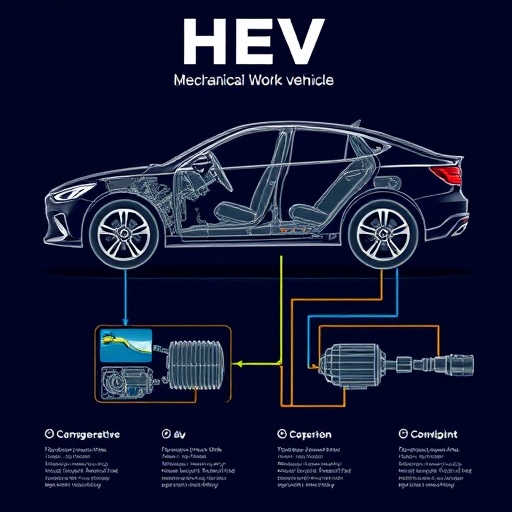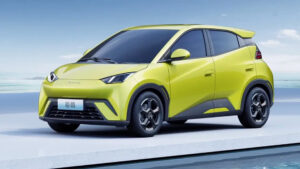
Hybrid Car
In recent years, hybrid Engines vehicles have gained immense popularity, and Toyota has been at the forefront of this revolution, producing a range of reliable and efficient hybrid models. This article will explore the reliability of Toyota hybrid engines, analyzing their performance, longevity, and maintenance practices. As we delve into the world of Toyota hybrids, we will provide key insights, data, and answers to common questions often posed by potential buyers.
Understanding Toyota Hybrid Engines
Toyota has been a pioneer in hybrid technology, introducing the Prius in 1997, which has since become synonymous with eco-friendly driving. Toyota hybrid engines combine conventional gasoline engines with electric motors, leading to improved fuel efficiency and reduced emissions. This technology has allowed Toyota to create a reliable lineup of fuel-efficient vehicles that deliver both power and eco-friendliness.
Key Features of Toyota Hybrid Engines
- Hybrid Synergy Drive: Toyota’s proprietary technology that manages the power from the gasoline engine and electric motor.
- Regenerative Braking: This feature captures energy usually lost during braking and converts it into electricity, recharging the hybrid battery.
- Battery Life: Toyota’s hybrid batteries are designed to last, often exceeding 100,000 miles or more with proper care.
Table: Reliability of Toyota Hybrid Models
| Model | Reliability Rating | Average Lifespan (Miles) | Warranty Coverage |
|---|---|---|---|
| Prius | 9.1/10 | 200,000+ | 8 years / 100,000 miles |
| RAV4 Hybrid | 8.8/10 | 150,000+ | 8 years / 100,000 miles |
| Camry Hybrid | 9.0/10 | 200,000+ | 8 years / 100,000 miles |
| Highlander Hybrid | 8.5/10 | 150,000+ | 8 years / 100,000 miles |
| Corolla Hybrid | 8.7/10 | 150,000+ | 8 years / 100,000 miles |
Are Toyota Hybrid Engines Reliable?

Performance Over Time
One of the most significant markers of reliability is how a vehicle performs over time. Owners of Toyota hybrids have reported high satisfaction rates and fewer major mechanical issues compared to traditional internal combustion engines.
- Durable Components: Toyota hybrids are built with high-quality parts designed to endure long-term use.
- Regular Maintenance: Following a regular maintenance schedule significantly enhances the longevity and reliability of Toyota hybrids.
Longevity of Hybrid Batteries
A common concern among potential hybrid owners is the lifespan of the hybrid battery. Toyota hybrid batteries are engineered for durability and longevity, often lasting beyond 8-10 years or 100,000 miles. Here are some factors influencing hybrid battery lifespan:
- Driving Habits: Gentle driving and avoiding extreme temperatures can help preserve battery life.
- Maintenance: Routine checks and services keep the battery functioning optimally.
- Battery Technology: Toyota uses advanced lithium-ion and nickel-metal hydride batteries, known for their stability and performance.
Maintenance Practices
To ensure that Toyota hybrids remain reliable, adhering to proper maintenance practices is essential. Here are some maintenance tips to consider:
- Regular Oil Changes: Required at standard intervals as specified in the owner’s manual.
- Tire Care: Regular rotation and pressure checks to enhance fuel economy.
- Brake Inspection: The regenerative braking system reduces wear, but routine checks are still recommended.
- Battery Health Monitoring: Regular checks can help identify potential issues before they escalate.
Benefits of Owning a Toyota Hybrid
- Fuel Efficiency: Significantly lower fuel consumption compared to traditional vehicles.
- Reduced Emissions: Contribution to an environmentally friendly driving experience.
- Government Incentives: Many regions offer incentives for purchasing hybrid vehicles, adding to their affordability.

FAQs About Toyota Hybrid Reliability
1. How long do Toyota hybrid engines typically last?
Toyota hybrids are designed to last over 200,000 miles with proper maintenance, although experiences may vary.
2. What is the warranty coverage for Toyota hybrid batteries?
Toyota offers an 8-year/100,000-mile warranty for hybrid batteries, reflecting their commitment to durability.
3. Are hybrid vehicles more expensive to maintain?
While hybrid vehicles may have specific maintenance needs, overall maintenance costs can be lower due to less frequent brake use and excellent fuel economy.
4. What should I do if my hybrid battery needs replacement?
If the hybrid battery showcases issues, it is advisable to consult a certified Toyota dealership or technician for assessment and replacement.
5. Do Toyota hybrids require special fuels or oils?
Toyota hybrids do not require special fuels but should use recommended oil types for optimal performance.
Conclusion
In conclusion, Toyota hybrid engines are widely regarded for their reliability, backed by years of proven technology and customer satisfaction. By choosing a Toyota hybrid, drivers can expect robust performance, exceptional fuel economy, and eco-friendly benefits. With the right maintenance practices, these vehicles can deliver a long, reliable lifespan. As the automotive industry continues to evolve, Toyota stands out as a leader in hybrid technology, making their vehicles a dependable choice for environmentally conscious consumers. Whether you’re driving to work or embarking on a family road trip, a Toyota hybrid will undoubtedly meet your needs with efficiency and reliability.







4 thoughts on “Are Toyota Hybrid Engines Reliable And the Best? An In-Depth Analysis”
Comments are closed.